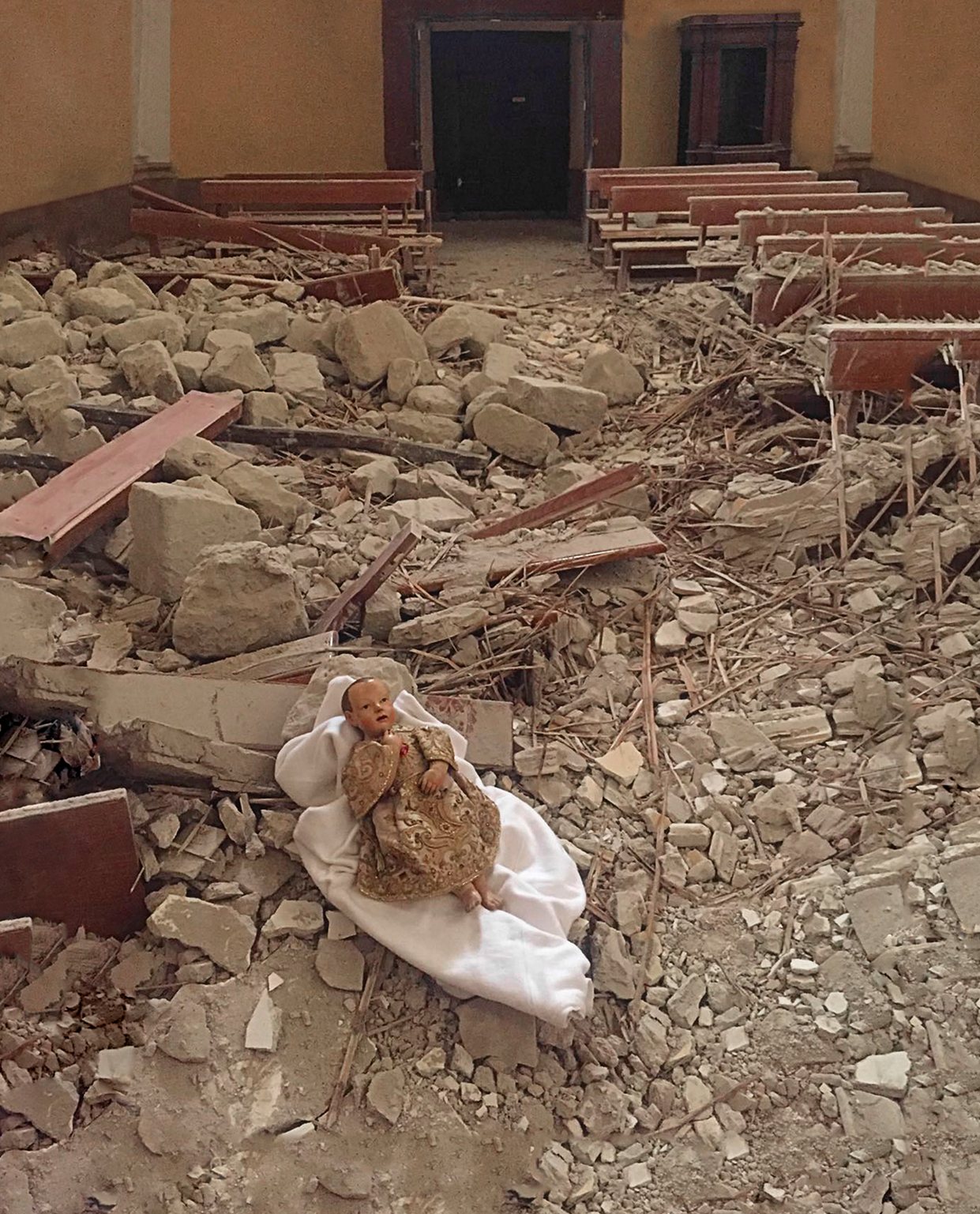
From March 7, the Fitzwilliam Museum in Cambridge will display to the public a number of religious works rescued from the Italian region of Marche, which was affected by lethal earthquakes that shook the area in October 2016.
Among the works—which will be displayed as part of the upcoming major exhibition “Madonnas and Miracles: The Holy Home in Renaissance Italy”—one is particularly relevant: a 15th-century polychrome wooden doll of the Christ Child that is still miraculously intact despite the earthquake on October 26 last year that reduced the Monastery of Santa Chiara, where it lived, to rubble.
Known as the Camerino doll, after the city of Camerino surrounding the Santa Chiara complex, it is leaving Italy for the first time to be displayed in Cambridge. It was already slated to be featured in the exhibition before the earthquake struck. The artifact has been an object of veneration for centuries; according to a press release from the museum, women in Renaissance Italy often had similar dolls, which they dressed, handled and kissed, mimicking the Virgin’s maternal bond with Christ.
“Looked after by the nuns of Santa Chiara, the Camerino doll is annually revered by crowds of people who queue up to kiss it on the Feast of Epiphany [on January 6] (which celebrates the arrival of the Three Kings to the stable in Bethlehem, where they worshipped the newly born infant Christ),” reads the museum’s statement.
The Viadana family prays to St Nicholas to save them from an earthquake (16th century). Photo ©Museo di San Nicola.
The show will also feature three groups of ex-voto paintings, works made as offerings to saints, from the 15th and 16th centuries. None have ever been displayed in the UK before, and one of the series comes from Tolentino, which was also struck badly with three successive tremors in late 2016.
Coincidentally, one of these 16th-century ex-voto paintings depicts a family praying to a local saint to save them from an earthquake. Make of that what you will.
“Madonnas and Miracles” will be on view at the Fitzwilliam Museum in Cambridge from March 7 to June 4, 2017.